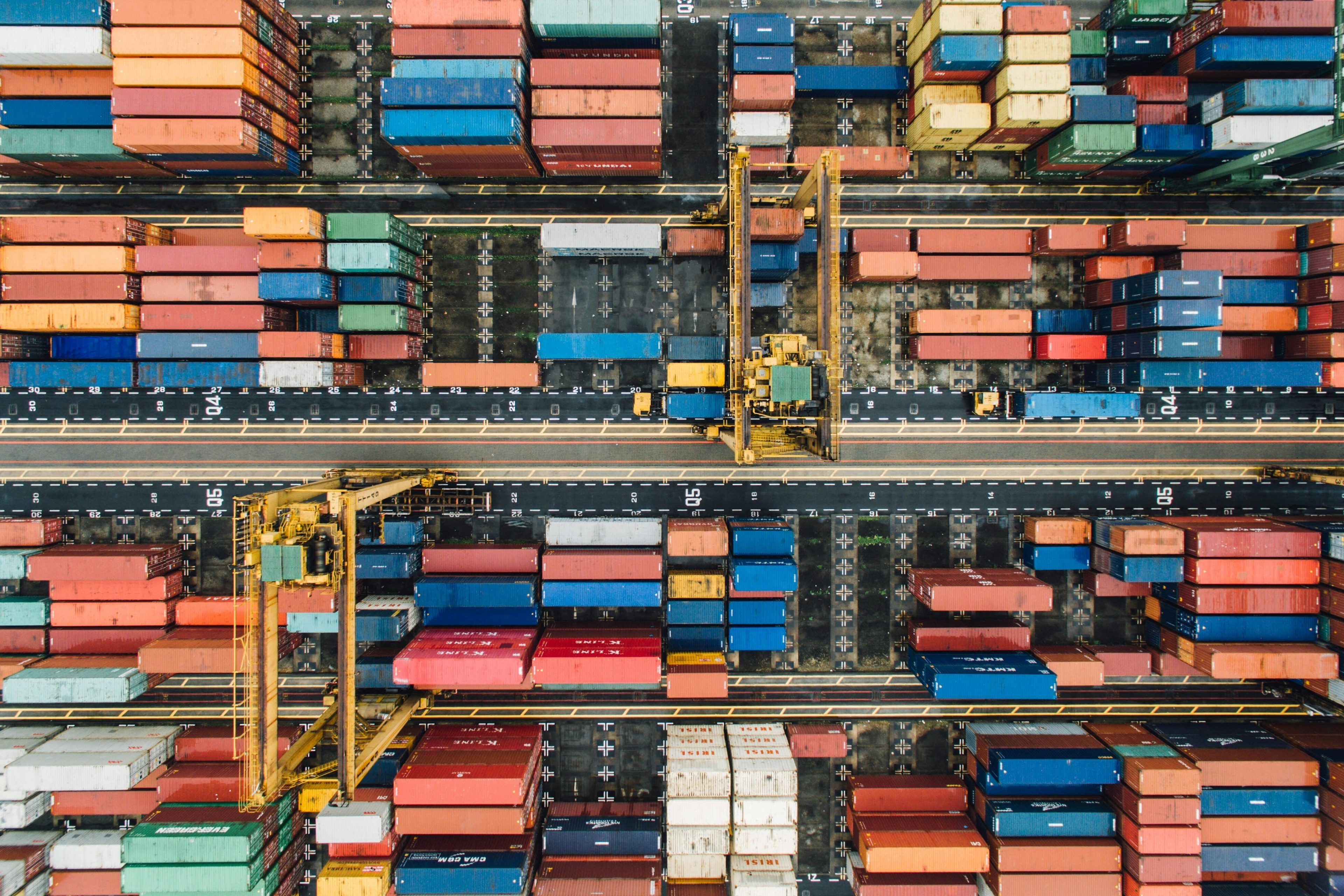Free trade is under pressure – but we need more of it not less
A cargo ship at the Miraflores locks in Panama City.
Image: REUTERS/Carlos Jasso
Stay up to date:
Trade and Investment
Cooperation on trade, under globally-agreed rules, has helped the world become more peaceful, richer and more developed, but we cannot just assume that the benefits of trade will simply continue. Trade is under pressure in many places, both among politicians in the USA and Europe and in emerging countries. And in many countries, people are also becoming more sceptical. We see protectionism creeping forward in various places – in the form of barriers and regulations limiting trade. This is bad for growth in the world and it is bad for a small, open economy like Denmark's.
We believe the argument that trade constitutes a threat and that it is therefore wisest to cut yourself off from the rest of the world is wrong. It is also economically and politically risky. Trade has created growth and employment and it has helped to lift hundreds of millions of people out of poverty. It also contributes to a more peaceful coexistence between nations. We need to increase trade between countries, not limit it.
The notion that trade only favours large companies is also misguided – all can benefit. It is true that exporting can be more costly and difficult for small enterprises, so we need to respond to that and lower the barriers for SMEs, particularly as they are such huge job creators. We also need to respond to the claim that trade is the major cause of job-losses. In fact, the majority of jobs disappear because of new technology and increased productivity – not because of increased imports or trade.
Of course, however, it is true that while the positive effects of trade benefit society as a whole, some companies and workers can be impacted negatively by increased competition when markets are opened up. These impacts can be strongly felt, and so an important task for governments is to mitigate such possible consequences of trade and assist workers and economies to adapt to a more competitive environment. We must take these challenges very seriously – while also heeding the lesson of history that protectionism is not the answer.
The most important bulwark against protectionism is the World Trade Organisation. With its broad membership covering over 98% of global trade and its system of global trade rules, the WTO helps to ensure clarity, transparency and cooperation. And the WTO's dispute settlement system helps to ensure that those rules are enforced. Common rules are good. The WTO is responsible for providing common rules and increased market access in 162 countries – something no regional trade agreement can offer.
And the WTO actually delivers results. In 2013, the members of the WTO agreed on a Trade Facilitation Agreement that eliminates bureaucracy and delays in moving goods across borders. When ratified, it will reduce global trade costs by up to 15%, leading to a boost in trade of up to 1 trillion US dollars. The effect of this will be even greater than if all the remaining customs duties in the world were reduced to zero. That is something that will help enterprises and consumers. We therefore encourage all WTO members to ratify the agreement as soon as possible.
In December of last year, the WTO members agreed in Nairobi on eliminating export subsidies on farm products – the largest agricultural reform in 20 years. A group of members, including Denmark as part of the EU, also achieved consensus on an agreement involving free trade with IT products that eliminates custom duties on approximately 10% of the total global trade.
But now we need to look to the future – where should the WTO create results in the coming years? There are many outstanding issues which must be tackled – such as agricultural subsidies, and market access for farm produce, services and industrial goods. In addition, in many areas of the economy, a rapid evolution is underway that will have consequences for the flow of trade. With this in mind, the EU, including Denmark, and some other WTO members are interested in creating better conditions for SMEs and defining rules for investments and the new digital economy, for example. Progress in all trade negotiations – whatever the issue on the table – must be pursued in a way that serves the interests of the poorest countries – something that especially Denmark and the EU prioritize highly. Those countries must be supported to take part in the world economy – for everyone's benefit. That's one reason why the WTO is so important – everyone has a seat at the global negotiating table.
We need to redouble our efforts to address the challenges in the trading system, but we must not, in difficult times, cast overboard the great advantages for the economy, for enterprises and for consumers that global trade has given us. This means resisting protectionist pressures – and it means changing the narrative about trade.
These issues were on the agenda at a major conference this week on free trade in Copenhagen arranged by Denmark. We focused on the next steps for the WTO. And on why trade, and a strong global trading system, matters more than ever.
Don't miss any update on this topic
Create a free account and access your personalized content collection with our latest publications and analyses.
License and Republishing
World Economic Forum articles may be republished in accordance with the Creative Commons Attribution-NonCommercial-NoDerivatives 4.0 International Public License, and in accordance with our Terms of Use.
The views expressed in this article are those of the author alone and not the World Economic Forum.
Forum Stories newsletter
Bringing you weekly curated insights and analysis on the global issues that matter.
More on Trade and InvestmentSee all
Lisa Satolli
July 17, 2025
Yusuf Maitama Tuggar
July 10, 2025
Bright Simons
July 7, 2025
Erik Crouch
July 1, 2025




